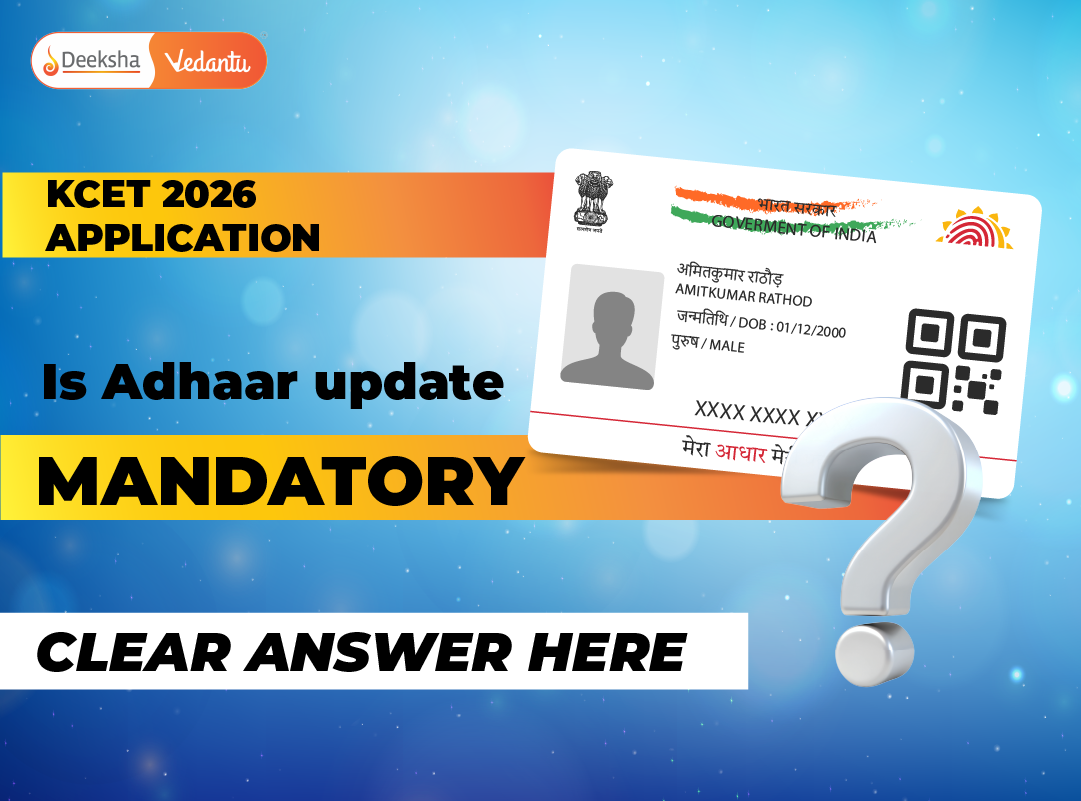Introduction
In the dynamic landscape of parenting, one crucial aspect that often presents both challenges and opportunities is effective communication with high school teenagers. The journey through adolescence is marked by significant changes, and as parents, understanding the nuances of communicating with our teenage sons and daughters is paramount.
Navigating this critical phase requires mastering the art of parent-teen communication, as it plays a pivotal role in fostering trust, resolving conflicts, and nurturing healthy relationships. As teenagers grapple with their newfound independence, identity formation, and increasing exposure to external influences, open and effective dialogue becomes the cornerstone of successful parenting.
In this blog, we will delve into the intricacies of communicating with high school teenagers, addressing common teenage communication problems, and exploring strategies to bridge the gap between parents and adolescents. We’ll provide insights into why teenagers sometimes seem to “hate” their parents and offer guidance on how to enhance the quality of interactions. So, whether you’re a parent seeking better ways to connect with your teenage daughter or son, or simply looking for valuable tips on teenage parenting, join us on this journey to unlock the secrets of successful parent-teen communication.
Understanding Teenagers
Understanding high school teenagers is a critical first step in effectively communicating with them. Adolescence is a transformative period marked by numerous changes and challenges that teenagers and their parents encounter. During this phase, teenagers often experience heightened emotions, struggle with self-identity, and seek independence.
One common issue that parents may encounter is the perception that their teenagers “hate” them. While this may not necessarily be true, it often arises from the tension between parental authority and the teenager’s desire for autonomy. Teenagers may also face peer pressure, academic stress, and the allure of social media, all of which can contribute to teenage issues with parents.
In this context, it’s vital for parents to empathize with their high school teenagers, acknowledging their feelings, and respecting their need for space and individuality. Effective parent-teen communication should aim to bridge these gaps, allowing for open dialogue that fosters trust and understanding.
By understanding the unique characteristics and challenges of high school teenagers, parents can better navigate the complexities of adolescence and build stronger connections with their sons and daughters. In the following sections, we will explore practical strategies and activities to improve parent-teen communication and address teenage communication problems.
The Importance of Communication
Effective communication is the cornerstone of building strong and healthy relationships between parents and high school teenagers. In the context of parent-teen relationships, communication plays a pivotal role in establishing trust, mutual understanding, and resolving conflicts. It serves as a bridge that connects parents with their teenage sons and daughters, allowing for the exchange of thoughts, feelings, and concerns.
When done effectively, communication can address and alleviate teenage issues that often arise during this transformative phase. Parents can gain insights into their teenagers’ struggles, aspirations, and challenges, while teenagers can feel heard and supported. By fostering open and honest dialogue, parents can help their teenagers navigate peer pressure, academic stress, and emotional ups and downs.
Effective communication is not limited to the parent-teen relationship alone; it also influences teacher-student communication. In school, teachers who communicate effectively with their students can create a positive learning environment and better understand students’ needs and concerns.
In the following sections, we will explore various parent-teen communication activities and strategies to enhance communication skills. By prioritizing communication, parents can strengthen their relationships with their high school teenagers and equip them with essential life skills for the future.
Barriers to Communication
In the journey of effective communication with high school teenagers, it’s crucial to recognize and address the barriers that often hinder productive conversations. Here are some common obstacles and reasons for teenage communication problems:
- Generation Gap: Differences in age, experience, and worldview can create a generation gap that may lead to misunderstandings. Parents may struggle to relate to their teenagers’ modern concerns and interests.
- Peer Pressure: Teenagers often prioritize peer relationships, and the influence of friends can sometimes overshadow communication with parents. They may hesitate to share their experiences and feelings.
- Emotional Turmoil: Adolescence is a time of emotional ups and downs. Teenagers might find it challenging to articulate their emotions or express them effectively to their parents.
- Fear of Judgment: Teenagers may fear being judged by their parents for their choices or mistakes, which can discourage open communication.
- Limited Attention Span: In today’s fast-paced digital world, teenagers often have shorter attention spans. Lengthy lectures or discussions may not hold their interest.
- Privacy Concerns: Teenagers value their privacy, and they might not want to disclose every aspect of their lives to their parents. Respecting their boundaries is crucial.
- Overuse of Technology: Excessive use of smartphones and social media can hinder face-to-face communication. It’s essential to strike a balance between virtual and real-world interactions.
- Stress and Pressure: Academic and extracurricular demands, along with the pressures of transitioning to adulthood, can lead to stress. This stress may affect their willingness to engage in conversations.
To overcome these barriers, parents can adopt strategies that promote trust and openness. These include active listening, respecting boundaries, creating a non-judgmental environment, and finding common interests. Additionally, seeking professional guidance from a counselor or therapist can be helpful if communication problems persist.
Understanding these obstacles and addressing them with patience and empathy can lead to improved parent-teen communication, strengthening the parent-child relationship during the challenging high school years.
Effective Communication Strategies
Effective communication with high school teenagers is crucial for building strong parent-teen relationships and addressing teenage issues. Here are some practical strategies to enhance communication:
- Active Listening: Actively listen when your teenager talks. Show genuine interest in their thoughts and feelings. Avoid interrupting or jumping to conclusions. This helps them feel heard and valued.
- Open Dialogue: Create an environment where your teenager feels comfortable sharing their thoughts and concerns. Encourage them to express themselves without fear of judgment. Be open to discussing various topics, even those you might find uncomfortable.
- Avoid Criticism: Instead of criticizing, offer constructive feedback. Focus on their behavior or actions rather than labeling them. Avoid using hurtful or negative language.
- Nonverbal Communication: Pay attention to nonverbal cues like body language and facial expressions. These can provide insights into your teenager’s emotions, even when they don’t express them verbally.
- Empathize: Try to understand their perspective and validate their feelings, even if you don’t agree. Empathizing helps build trust and shows that you respect their emotions.
- Communication Games: Engage in communication games or activities that promote interaction. Board games, puzzles, or outdoor activities can provide a relaxed atmosphere for meaningful conversations.
- Set Aside Quality Time: Allocate dedicated time for one-on-one interactions with your teenager. This allows for deeper connections and meaningful discussions.
- Digital Boundaries: Discuss the appropriate use of digital devices and social media. Set boundaries together and educate them about online safety.
- Share Experiences: Share your own experiences and challenges from your teenage years. This can help your teenager feel understood and less alone in their struggles.
- Respect Privacy: Respect your teenager’s need for privacy. While open communication is essential, it’s also crucial to give them space when necessary.
- Conflict Resolution: Teach conflict resolution skills and model healthy ways to resolve disagreements. Encourage compromise and finding common ground.
- Stay Informed: Stay informed about your teenager’s interests, hobbies, and social circles. This helps you connect with them on topics they are passionate about.
Effective communication requires effort and patience. By employing these strategies, parents can bridge the generation gap and create a supportive and understanding relationship with their high school teens. Remember that every teenager is unique, and flexibility in your approach is key to successful communication.
Utilizing Technology and Social Media
In today’s digital age, technology and social media play a significant role in parent-teen communication. Here are some tips for utilizing technology and social media effectively:
- Mutual Learning: Embrace technology as a tool for mutual learning. Explore your teenager’s interests online together. Whether it’s gaming, social media trends, or educational apps, engaging together can strengthen your bond.
- Digital Etiquette: Teach your teenager about digital etiquette and online manners. Discuss the importance of respectful communication, the consequences of cyberbullying, and how to handle online conflicts maturely.
- Online Privacy: Highlight the significance of safeguarding personal information and privacy settings. Help your teenager understand the importance of strong, unique passwords and the potential risks of oversharing.
- Online Resources: Encourage your teenager to use online resources for academic purposes. Explore educational websites, e-books, and online courses that can enhance their learning experience.
- Digital Creativity: Support and appreciate your teenager’s digital creativity. Whether they’re into graphic design, content creation, or coding, encourage their passions and provide opportunities for skill development.
- Respect Screen Time: Collaboratively establish guidelines for screen time. Discuss the balance between online and offline activities, ensuring they have time for physical activity, hobbies, and social interactions.
- Digital Safety Discussions: Regularly initiate discussions about online safety. Ask your teenager about their experiences, any concerns they may have, and reassure them that they can confide in you about any online challenges.
- Online Support Networks: Familiarize yourself with the online communities and groups your teenager is a part of. Understand the role these communities play in their life and offer your support and guidance.
- Stay Informed Together: Keep up with the latest trends and developments in the digital world. Share interesting articles or news stories related to technology and social media, fostering insightful conversations.
- Emphasize Digital Citizenship: Promote the idea of being responsible digital citizens. Encourage your teenager to use their online presence for positive contributions, such as volunteering or advocating for causes they care about.
Incorporating technology and social media into your parent-teen communication can be a valuable way to stay connected and understand your teenager’s world. By setting boundaries and promoting responsible online behavior, you can help your teenager navigate the digital landscape safely and confidently.
Building Trust and Empathy
Building Trust and Empathy: The cornerstone of effective parent-teen communication lies in trust and empathy. Here’s how to cultivate these essential qualities:
- Empathetic Responses: Empathy involves understanding and sharing your teenager’s emotions. When they confide in you, respond empathetically by saying things like, “I can understand why you might feel that way” or “I’m here for you.”
- Validation: Validate your teenager’s emotions, even if you don’t agree with their actions. Let them know it’s okay to feel a certain way, and offer support in finding healthier alternatives if necessary.
- Consistent Support: Reiterate your unwavering support for your teenager, no matter the situation. Knowing they have a reliable source of support in you fosters trust.
- Lead by Example: Demonstrate the qualities of trust and empathy in your interactions with your teenager. Show them what it means to be a good listener and a compassionate individual.
- Apologize When Necessary: If you make a mistake or react inappropriately, don’t hesitate to apologize. Modeling accountability teaches your teenager valuable life lessons.
- Seek Professional Help: If communication challenges persist, consider seeking professional guidance, such as family counseling or therapy, to navigate complex issues together.
By prioritizing trust and empathy, you can build a strong foundation for open, respectful, and empathetic communication with your high school teenager. This approach can lead to more meaningful connections and a smoother parent-teen relationship.
Communication Activities and Games
Enhancing parent-teen communication can be both productive and enjoyable through interactive activities and games. These engaging exercises foster understanding and strengthen relationships:
- Two-Minute Chats: Allocate a specific time for brief chats with your teenager daily. In these two-minute sessions, discuss any topic of their choice, allowing for regular, low-pressure communication.
- Role Reversal: Switch roles and let your teenager take on the parent’s role while you become the teenager. This activity helps both parties gain insight into each other’s perspectives.
- Storytelling: Encourage storytelling sessions where each family member shares a personal story. This activity promotes active listening and empathy.
- Question Jar: Create a jar filled with questions or conversation starters. Take turns picking questions and answering them, sparking meaningful discussions.
- Scavenger Hunt: Organize a scavenger hunt where you and your teenager collaborate to find hidden objects or solve riddles. This cooperative activity enhances teamwork and communication.
- Board Games: Play board games that encourage conversation, such as Scrabble, Pictionary, or storytelling-based games like Dixit. These games offer opportunities for bonding while having fun.
- Daily Journal: Maintain a shared journal where both you and your teenager write daily thoughts, questions, or experiences. This practice facilitates written communication and provides a platform for deeper discussions.
- Problem-Solving Challenges: Pose hypothetical challenges or dilemmas and work together to find solutions. This promotes critical thinking and collaborative communication.
- Parent-Teen Book Club: Pick a book to read together and schedule regular discussions. Sharing thoughts on characters, themes, and plotlines can lead to meaningful conversations.
- Creative Projects: Collaborate on creative endeavors like crafting, painting, or cooking. These activities encourage teamwork and provide a relaxed setting for communication.
- Outdoor Adventures: Engage in outdoor activities like hiking, biking, or camping. The natural environment often fosters open and relaxed conversations.
- Technology-Free Time: Designate specific times for technology-free communication. This means putting away devices and focusing solely on each other.
- Mindfulness Exercises: Practice mindfulness and relaxation techniques together. These activities can help reduce stress and create an environment conducive to communication.
- Story Swap: Share short stories or anecdotes about your day, allowing your teenager to do the same. This routine encourages daily interaction.
These communication activities and games can transform interactions with your high school teenager from occasional conversations into regular, meaningful exchanges. By incorporating these exercises into your routine, you can strengthen your relationship and create a comfortable space for open dialogue.
Conclusion
In conclusion, effective communication with your high school teenager is not only essential but also achievable through understanding, patience, and the application of various strategies. We’ve explored the significance of trust, empathy, and active listening in building strong parent-teen relationships. Additionally, we’ve introduced engaging communication activities and games that can turn everyday interactions into meaningful exchanges.
Remember that fostering open dialogue and maintaining a supportive environment are key to addressing teenage issues and concerns. By incorporating the communication strategies and activities discussed here, you can navigate the challenges of parenting a teenager with confidence.
At Deeksha, we understand the significance of nurturing a conducive learning and growing environment for students, even outside their homes. Our holistic approach to education ensures that students not only excel academically but also feel comfortable, supported, and encouraged to reach their full potential. We believe that effective communication, both at home and at our campuses, plays a crucial role in a student’s overall development and success. Explore this further by considering dSAT (Deeksha Scholastic Aptitude Test).










Get Social